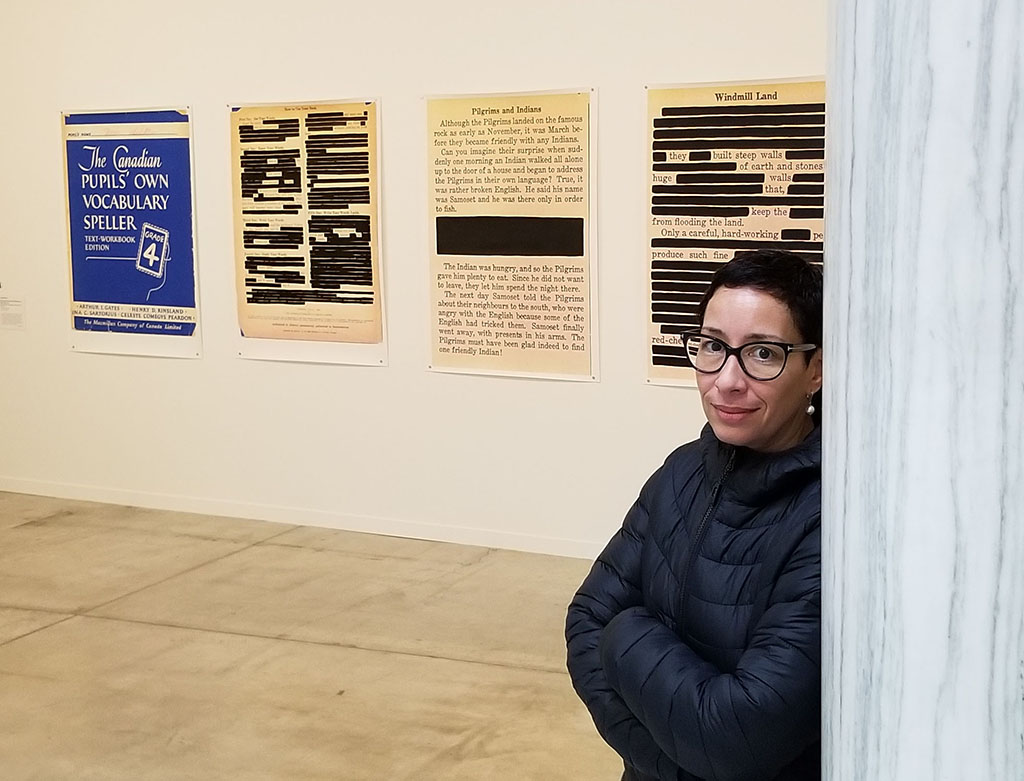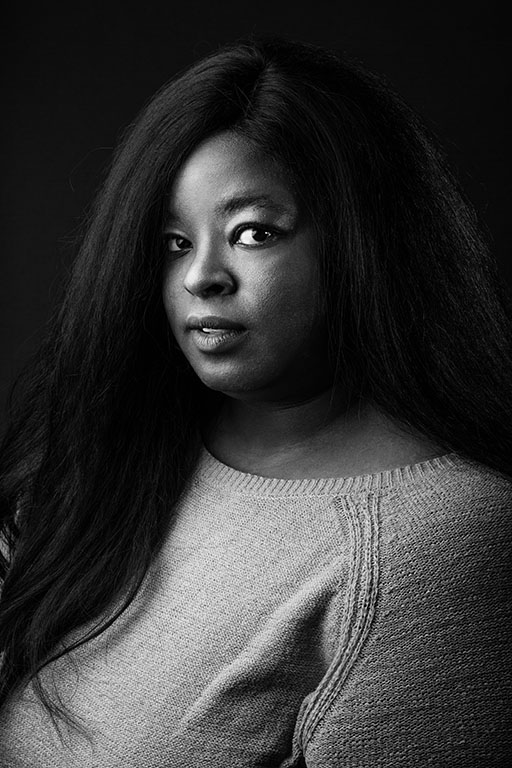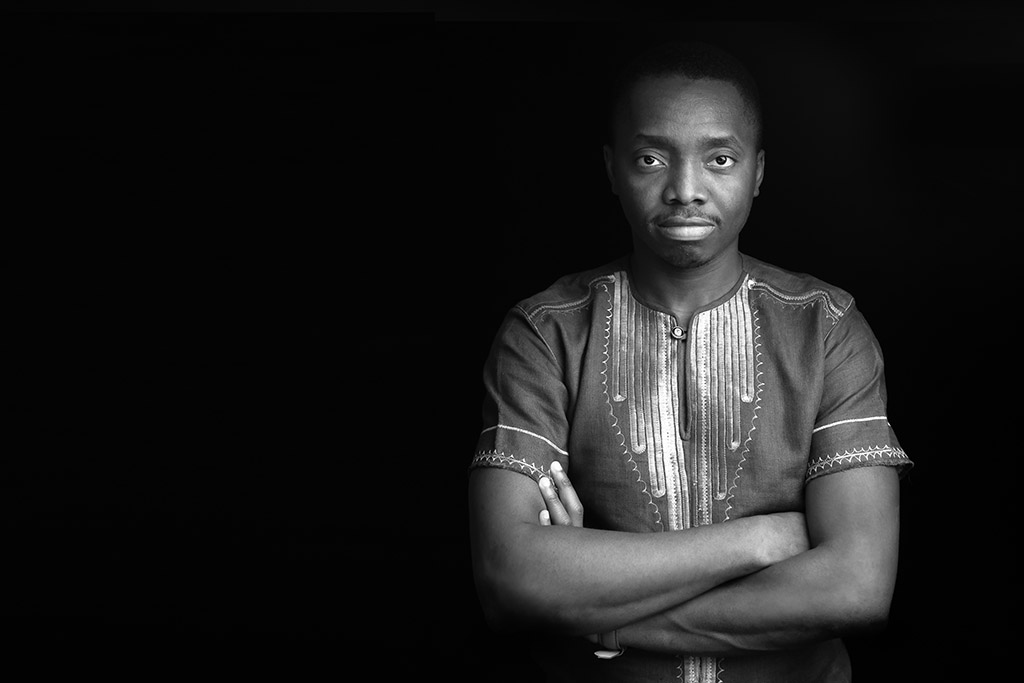Given that Valentine’s Day occurs during Black History month, I asked three local Black poets to share a love poem with Tyee readers.
Love poems can cover a gamut of emotions — delight, wonder, envy, longing, regret, frustration, loneliness, disappointment, grief — but they don’t necessarily have to be about romantic love. Some of the most moving and powerful love poems relate family and ancestral relationships, and even social justice.
Recent winner of the Governor General’s Literary Award for poetry for his collection, The Junta of Happenstance, Surrey poet and former physician Tolu Oloruntoba shared a brand-new poem about intergenerational bonds.
He noted that the title of this new poem refers to a Yorùbá naming tradition: “People name a child after a departed relative in the belief that they are an incarnation of deceased, or to memorialize them. Iyéwándé is one of such names.”
Iyéwándé
I will spoon slop into her mouth.
I will scoop the dribbles from her chin.
I will sponge her down in a warm bath.
I will carry her little body and set her feet on the ground.
I will hold her hand and teach her to walk.
I will tell her what unfamiliar words mean.
I will kiss her on the cheek.
Because for the first six months of my daughter’s life,
I kept seeing my dead and unmourned grandmother’s
face in hers. I am not very fond of ghosts, especially those
I wronged while they were alive, coward that I was,
choosing an American exile over duty by her bedside
as her ovaries exploded into cluster munitions.
I did not risk my comfort to visit her war.
So I will look in her face tenderly.
I will make the house safe for her.
I will help her discover the world outside.
I will do things that make her laugh.
I will sit by her bed as she drifts off to sleep.
I will not let her die.
Oloruntoba’s next collection, Each One a Furnace, is forthcoming from McClelland & Stewart in March 2022.

Award-winning writer, artist and educator, Chantal Gibson shared a love poem about connecting with ancestors from her most recent book, with/holding. Her work explores the overlap between literary and visual art, confronting colonialism and reimagining the BIPOC voices that have been silenced by cultural omission and institutional erasure.
Add Hominem
(sculpting the face of my ancestor)
wrap clay around the base
for a strong foundation
add more than you think you need
to thicken the neck then add
more and more and more
hammer the skull with your fists to release the air
score a line across the face to mark the horizon
add the eyes, lightly gouge them to sleep
smooth away the wrinkle in the brow
rub your thumbs gently over the cheeks
unclench the teeth release the jaw
erase the parentheses around the mouth
Gibson’s visual art has been exhibited in galleries and museums across Canada and the U.S. Her debut book, How She Read, won the 2020 Pat Lowther Memorial Award and the 2020 Dorothy Livesay Poetry Prize. She teaches writing and design communication in the School of Interactive Arts & Technology at Simon Fraser University.

Junie Désil’s is another local Black poet of note. She was born of immigrant Haitian parents in Montreal, raised in Winnipeg, and now lives in Vancouver. Her debut poetry collection Eat Salt | Gaze at the Ocean was a recent finalist for the Dorothy Livesay Poetry Prize.
She shared a brand-new poem in the form of a sestina, a French unrhymed verse structure that uses a pattern of repeated words. The last words of each line of the first stanza are repeated in a different order as the last words in each of the following five stanzas. The short closing stanza contains all six words in a certain order.
She confessed that “writing a sestina is hard, because it also constrains my natural tendency to go wide when I write, which for the purpose of this topic made the most sense.”
She wanted to use the sestina not only as a container for her ideas, “but also because I have been thinking about love a lot and how we often focus on romantic aspects…. [I] have been really moved by Dr. [Cornel] West when he says that justice is what love looks like in public. When I witness the challenges we are faced with and the desire to be just, I see that often justice is conditional on good behaviour, having the right politics etc. This is not to say that we cannot be held accountable for unacceptable behaviours, but I think the love we purport to have for each other, for community, is always conditional — I’m not sure that justice can prevail under those circumstances.”
Love (An Imperfect Sestina)
By Junie Désil
“Never forget that justice is what love looks like in public.”
- Dr. Cornel West
we scream dogma pursuing justice
have each other on our knees performing collective
confessionals for likes and some kind of public
salvation we mimic the churches we won’t sit in heart
hard as wooden pews punishment pressing care
like the back of our knees as we pray to a flawed love
we’re short on love
our heads tilted upwards as our eyes flood salt-water justice
in scarcity mode we give out care
in return for perfectioned collective
our cracked work-weary heart
sealed off in public
the theatre where we perform politics in public
and reserve meted out love
conditional tenderness buried deep in the heart
muscle up for justice and fail our collective
though we’re compassion fatigued we try to care
i want for us a fierce got-your-back care
the kind that’s unabashed in public
despite our shattered collective
face down injustice and respond with radical love
that is not conditional on our good behaviour - justice
for our pain-throbbed heart
How can you mend a broken heart
swathe it in layers of care
cradle the heart in justice
move through these times rooted - public
in our declaration of unconditional love
and mutual support of our fractured collective
to mend our collective
heart
never forget what love
(or care) looks like in public
justice
justice is what love looks like in public
There are even more critically acclaimed poetry collections to fall in love with, written by other notable local Black poets: Burning Sugar by Cicely Belle Blain, Braided Skin by Chelene Knight, 100 Days by Otoniya J. Okot Bitek, 49th Parallel Psalm and Performance Bond by Wayde Compton, and Triage, From the Poplars and Wayside Sang by Cecily Nicholson.
Whether it’s for another person, another creature, nature, justice, harmony or peace, or some heady combination of any or all of them, it’s always worth celebrating that love with a poem. ![]()
Read more: Rights + Justice, Media

















Tyee Commenting Guidelines
Comments that violate guidelines risk being deleted, and violations may result in a temporary or permanent user ban. Maintain the spirit of good conversation to stay in the discussion.
*Please note The Tyee is not a forum for spreading misinformation about COVID-19, denying its existence or minimizing its risk to public health.
Do:
Do not: